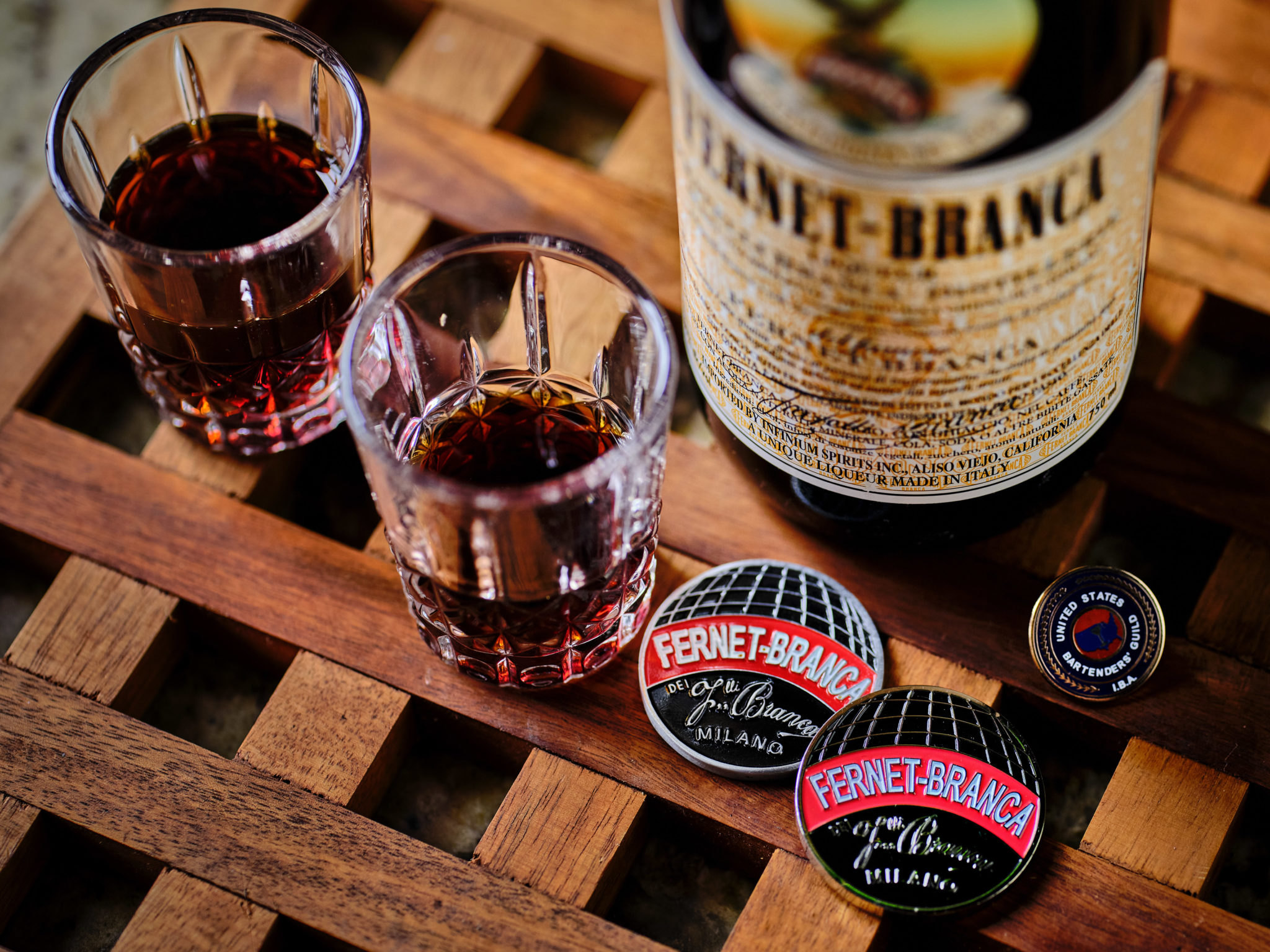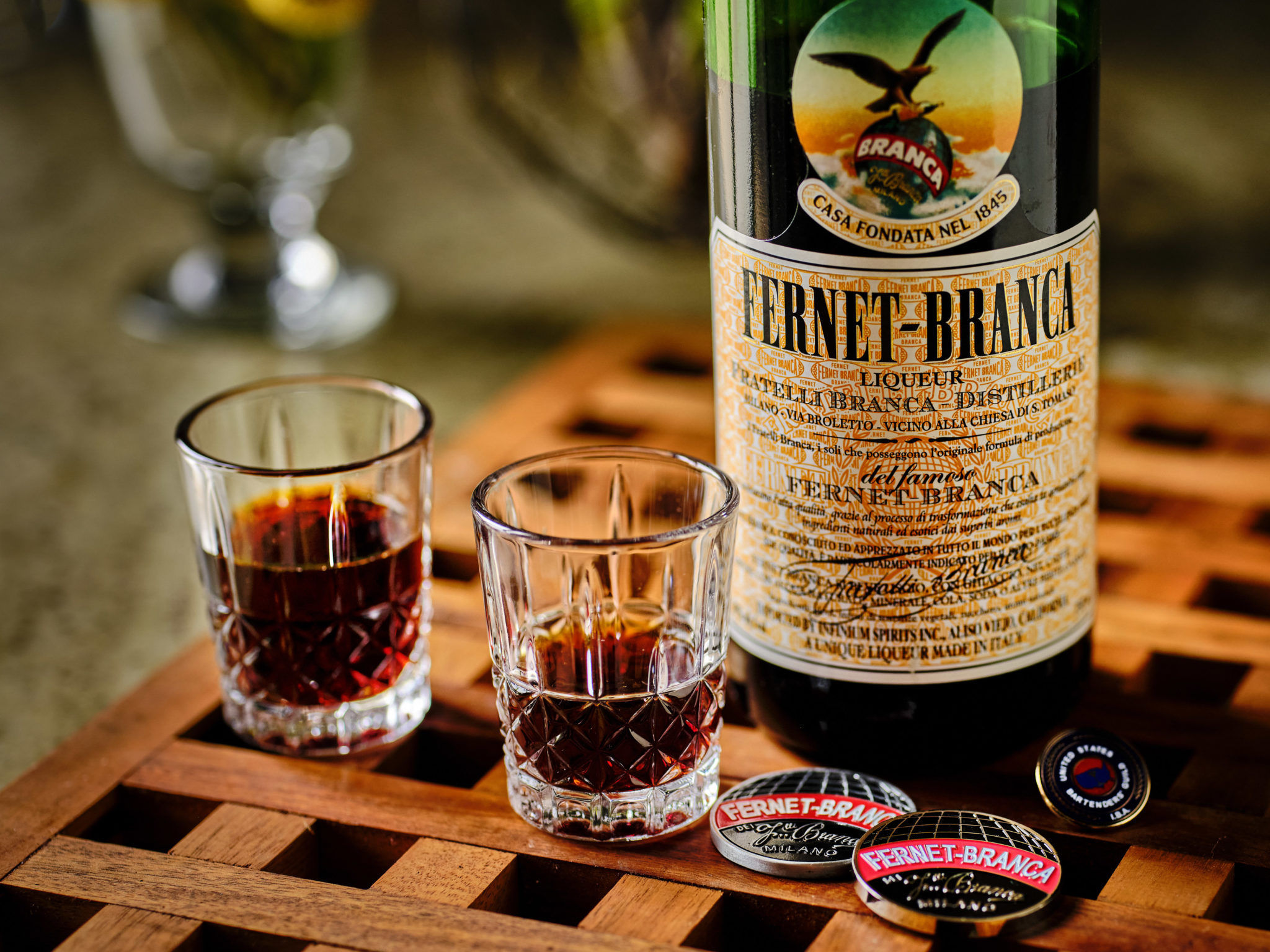Greeting industry: The bartender’s handshake explained

If you’ve been around the food and beverage scene long enough, there’s a phrase I’m sure you’ve heard before: the bartender’s handshake.
But what is the bartender’s handshake, exactly? Well, there is no universal answer. At its core, it’s a shot. However, it varies depending on the location and the hospitality culture there.
Jeppson’s Malört is synonymous with Chicago. The past few times that I’ve traveled to southern states, a shot of Angostura bitters was the welcome to the bar. A shooter of Fernet-Branca is probably most associated with the term, and for a moment, the Ferrari (equal parts Fernet and Campari) was the go-to pour.
Frequently, it’s something that the average consumer wouldn’t ask for or appreciate.
But they aren’t always esoteric and bitter liqueurs. A “snaquiri” (tiny daiquiri), or that little extra that was left in the tins after that last round of drinks or whatever the bartender is currently excited about experimenting with fits the bill as well.
A service industry trend that began in the service
It’s said that a possible origin of the bartender’s handshake actually claims military roots. As the story goes, a World War I lieutenant bought bronze medallions for his squadron. When one of his pilots was shot down behind enemy lines, he had his medallion with him, and after being captured and escaping, it was the only form of identification he had to prove his nationality. Since that medallion played such an integral role in him being recognized by allies, the rest of the squadron decided that everyone should have theirs on them at all times.
Of course, that turned into a drinking game: Someone would ask to see the medallion and if you didn’t flash it, you owed them a drink. If you did have it on you, the challenger owed you a drink.
Many years later, two brothers, Bret (owner of a souvenir coin business) and Tore (a Fernet sales rep) Kragerud decided to put a spin on that military tradition and created the Fernet Challenge coin based on the same concept. Toss your coin down on the bar and if the bartender isn’t able to produce theirs, you’re owed a shot of Fernet.
And while that’s a delightful tale that no doubt has impacted our drinking culture (and Fernet sales), the coins have only existed since 2013 — while hospitality, offering free drinks to friends, and welcoming your own industry peers have all existed long before that.
And while I know many people who collect the coins, myself included, I very rarely see them being revealed at bars. Fun game or presumptuous flex? Depends on the bartender, I guess.

The Detroit handshake
So, what is Detroit’s bartender handshake? I asked around and the consensus seems to be that Detroit has no ubiquitous go-to shot. Many times, the answer I got to the question of “What do you send out?” was “It depends on who it is.”
And that’s the thing about being a bartender: If you’re good at your job, you know and remember what your people like to drink.
In my humble opinion, the bartender’s handshake is just pure hospitality in the tight-knit Detroit area. No coin flash or request required to get that nod of recognition and the acknowledgment of your shared experience within the food and beverage industry.
At the end of the day, the bartender’s handshake is less about the actual liquid and more about the thought behind it. It’s saying: “Hi! I see you. You’re part of my community. Welcome, friend,” in the form of a beverage. It’s the no-words-exchanged gesture that communicates that you’re known and appreciated.
The food and beverage industry is a culture of care. Our livelihoods depend on our smiles and welcoming personalities, on our ability to not falter in providing even under the most stressful circumstances, on helping strangers celebrate their important milestones, and adding that extra thoughtfulness that turns a night at the bar into a memorable experience.
So it makes sense that our unspoken language with each other would be an offering of friendly generosity.
— By Jaz’min Weaver















